
New Boss Fires Employee He Didn’t Like, Turns Out He Brought In Nearly 50% Of Company’s Income
Good bosses know how to communicate well. They know to be patient. They know the importance of getting the lay of the land and learning about their employees. Meanwhile, one of the hallmarks of a bad leader is that they’re overly impulsive. This can lead to them losing top talent.
Case in point, redditor u/mackemforever recently went viral on r/antiwork with a tale about how a new owner ended up firing one of the company’s top performers because he did not understand what he did. Read on for the OP’s full story about her former coworker.
Before making any major changes at a company, it’s vital to take the time to understand how everything functions and who the key players are
Image credits: Yan Krukau (not the actual image)
One internet user shared how their former colleague, a top performer, got fired and the massive impact this had on the business
Image credits: Nicholas Cole (not the actual image)
Image credits: Ono Kosuki (not the actual image)
Image credits: mackemforever
Business leaders need to learn to be more patient and strategic before overhauling the entire company
Punctuality and deadlines are vital to the success of any business. However, they aren’t the only important things to consider. Different companies and industries will manage time differently. And it all varies from department to department, position to position, and project to project.
In some cases, working 9 till 5 is what’s expected because that’s what leads to the best results and satisfied customers. In other cases, employees might need to pull overtime or be flexible with their schedules because the work they do doesn’t fit neatly into office hours.
Their hours are erratic because their work is—fundamentally—erratic. Especially if they’re dealing with clients all over the globe, from many different time zones.
Meanwhile, if management is looking for ways to cut back on expenses, they should do some proper research about the type of money that different departments and employees bring in.
Saying that someone earns ‘too much’ is ridiculous if they’re responsible for a large part of your profits. However, this argument cuts both ways. Management might also find that some departments are genuinely underperforming and need to be reviewed.
The point is that nobody should be making any rash decisions the moment they take over a company. Shaking things up can hurt you just as much as it can help you. A more patient, strategic approach to business management is going to pay more dividends down the line.
Image credits: Yan Krukau (not the actual image)
The staff need to feel appreciated, instead of looked down on, otherwise they might look for other employment opportunities
New owners ought to ask themselves some simple questions. Who are their top talents? Why are they performing so well compared to others? What can be done to motivate them further? Can their tactics be replicated in other parts of the business?
Employee motivation is a massively complex issue. Once you’ve got the fundamentals like fair pay, growth opportunities, and career advancement right, you then need to look at the finer details of the company’s culture.
Employee recognition and appreciation can be very powerful. Meanwhile, workers also tend to value their autonomy, having (at least some) flexibility, and getting feedback from their colleagues.
However, if communication’s broken and there’s little to no transparency—you’ve got a major problem on your hands. No amount of pizza parties, donuts, karaoke nights, and other perks at the office is going to make up for a flawed workplace culture.
We get it that business leaders can be proud. They don’t want to admit they’ve made a mistake. In fact, few people enjoy owning up to that. But if managers can take responsibility for having made an error in judgment, they can start to fix things.
Image credits: cottonbro studio (not the actual image)
Bosses who can take responsibility for their mistakes can earn their employees’ trust
In this case, rehiring the pinball machine fanatic with an apology and better career prospects would have probably been the right call. Not only from an ethical perspective but also from the business side.
Another hidden upside is that all the other workers at the company would have started to view the new boss in a different light. Yes, he’d made a mistake firing the top performer. However, he’s shown that he’s able to recognize his own lapses in judgment. He’s not afraid of admitting when he’s wrong.
You can win over a lot of people when you show your human side and that you’re empathetic, not just cold and calculating.
Bad business leaders tend to ignore their staff members’ career prospects, avoid giving feedback, and shut down any ideas their staff put forward. They’ll also avoid open and clear communication whenever they can and might have no idea where they’re taking the business.
On the flip side, employees also dislike bosses who are micromanagers. They’re also critical of leaders who are inconsistent, inflexible, and who avoid conflict. They’ll take credit for your job while overworking you.
Good management practices fundamentally rest on the idea of mutual respect, teamwork, and empathy. But this level of introspection, change, and personal growth isn’t something that all managers are willing to go through.
Image credits: fauxels (not the actual image)
Here’s what the internet had to say about the viral story
Some readers ended up sharing similar stories
that reminds me of the boeing story, where engineer-led management was replaced with penny-pinching financial background management, which led to a considerable decrease in quality (because cost cutting) - cue recent boeing door incident; a test pilot testing a boeing model said he was not going to let anyone in his family fly on any one of the planes within the tested model line..
You don't fire people like that. You give them a raise and a new hire to document everything they know!
that reminds me of the boeing story, where engineer-led management was replaced with penny-pinching financial background management, which led to a considerable decrease in quality (because cost cutting) - cue recent boeing door incident; a test pilot testing a boeing model said he was not going to let anyone in his family fly on any one of the planes within the tested model line..
You don't fire people like that. You give them a raise and a new hire to document everything they know!

 Dark Mode
Dark Mode 

 No fees, cancel anytime
No fees, cancel anytime 



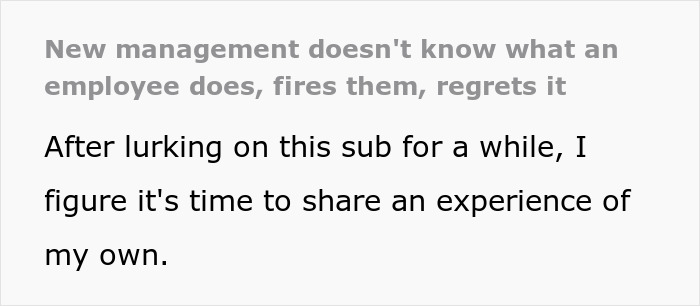
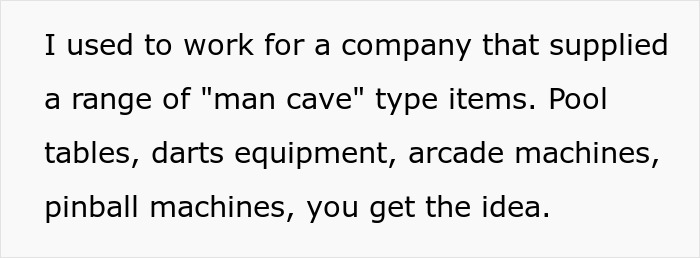
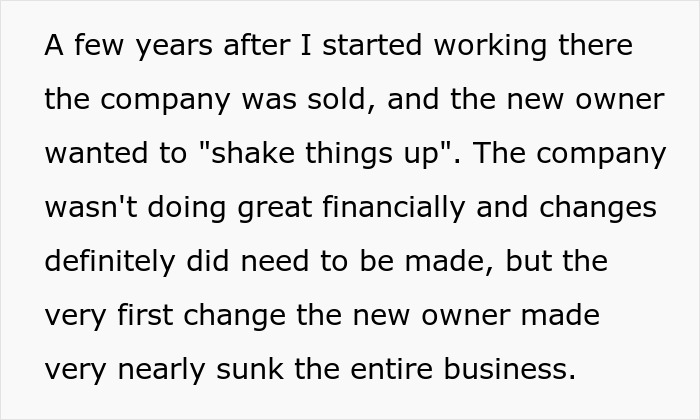

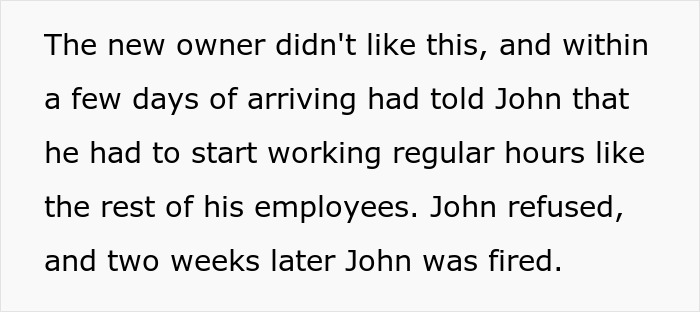

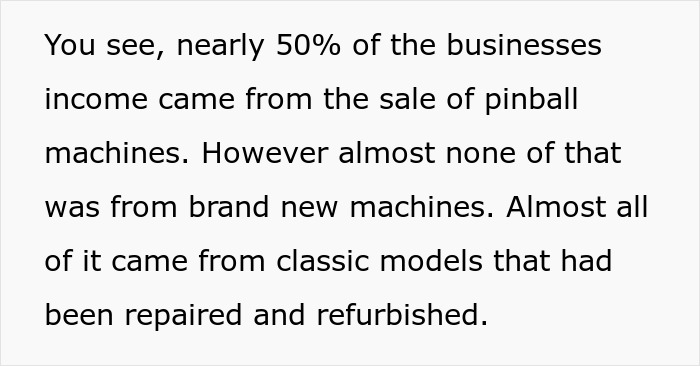



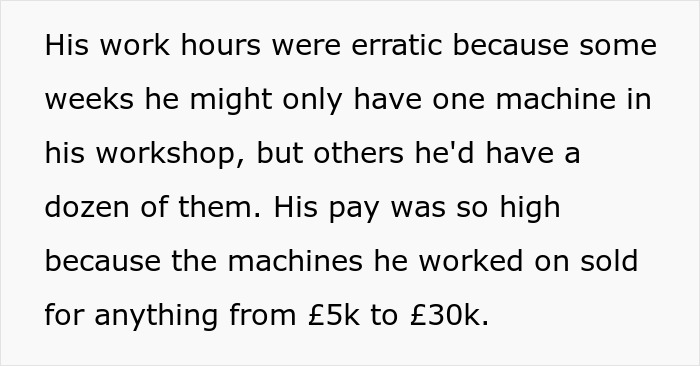

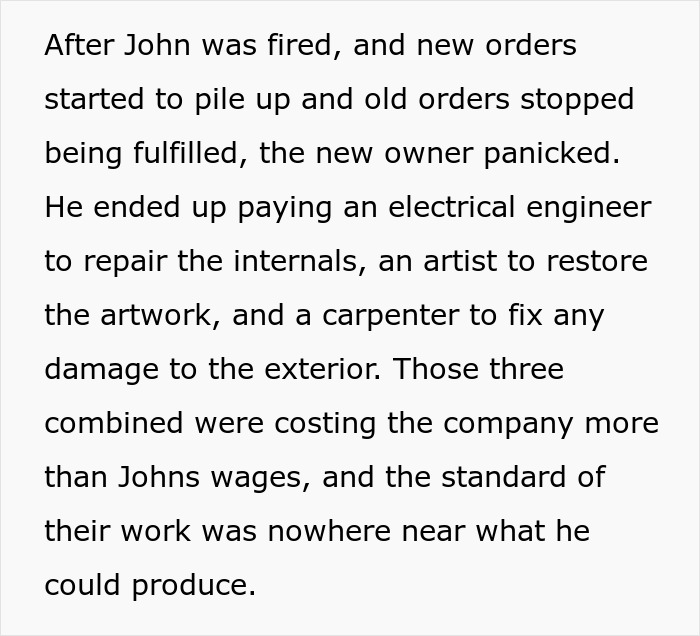
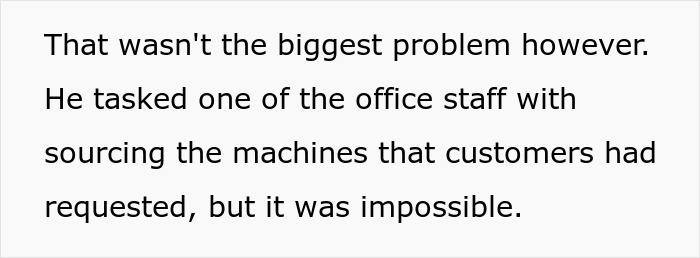

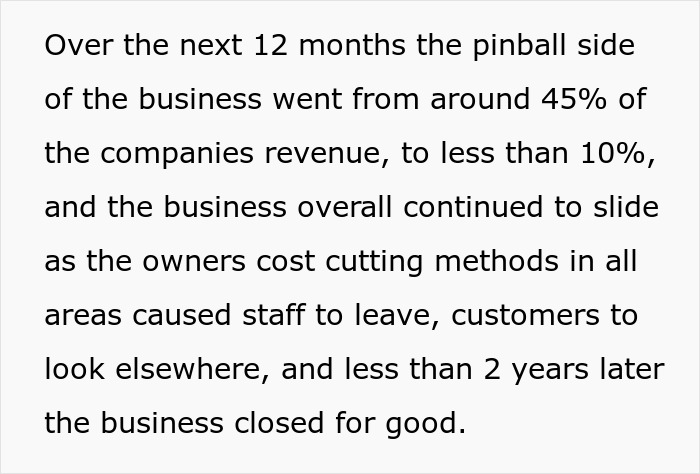
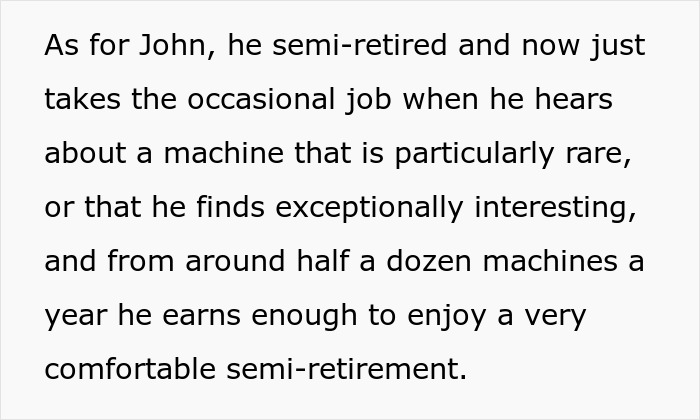





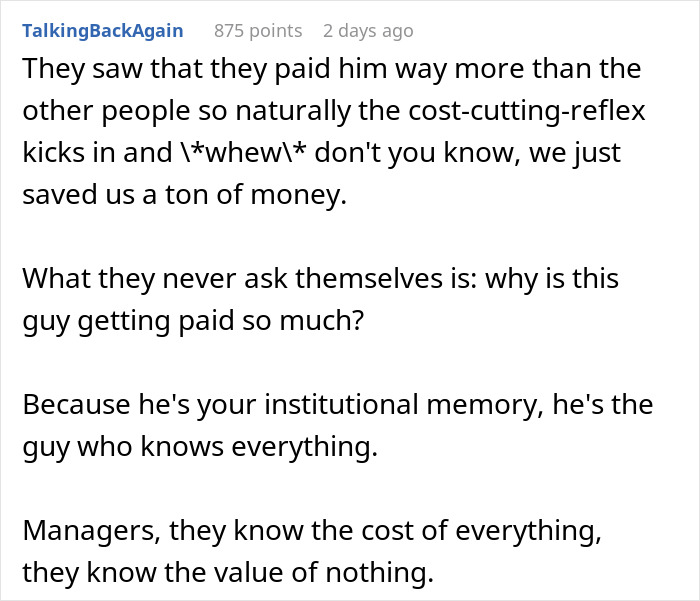


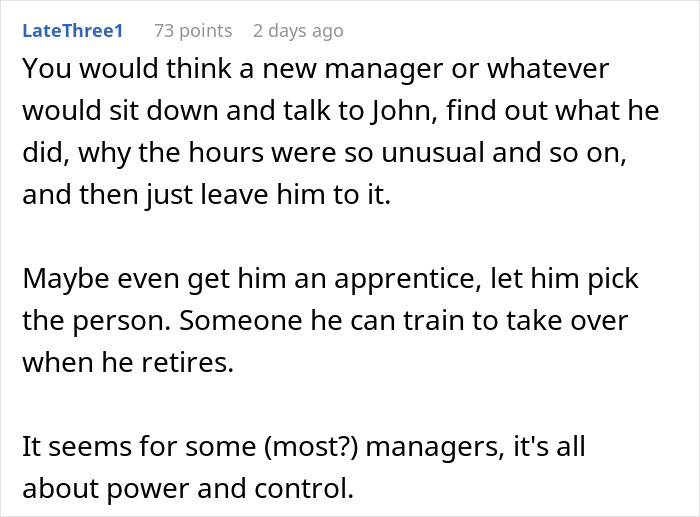
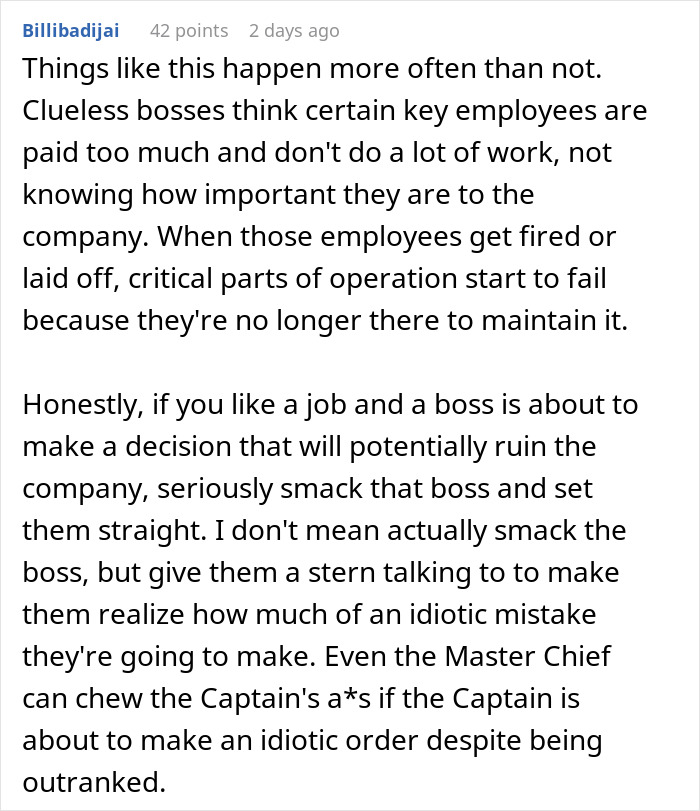



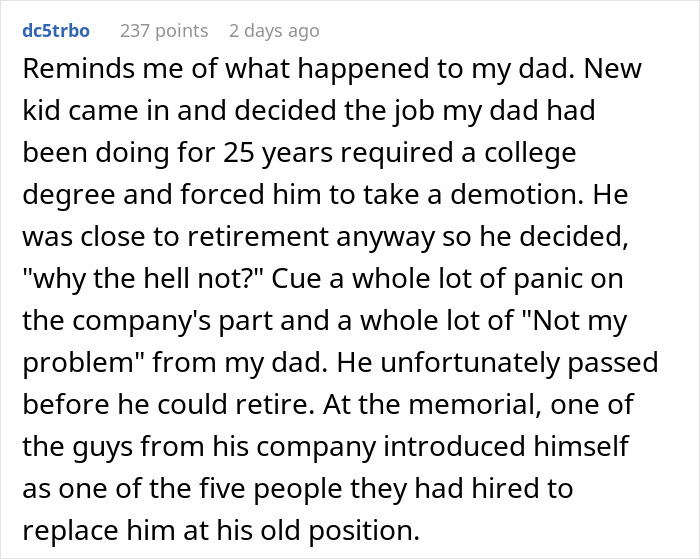

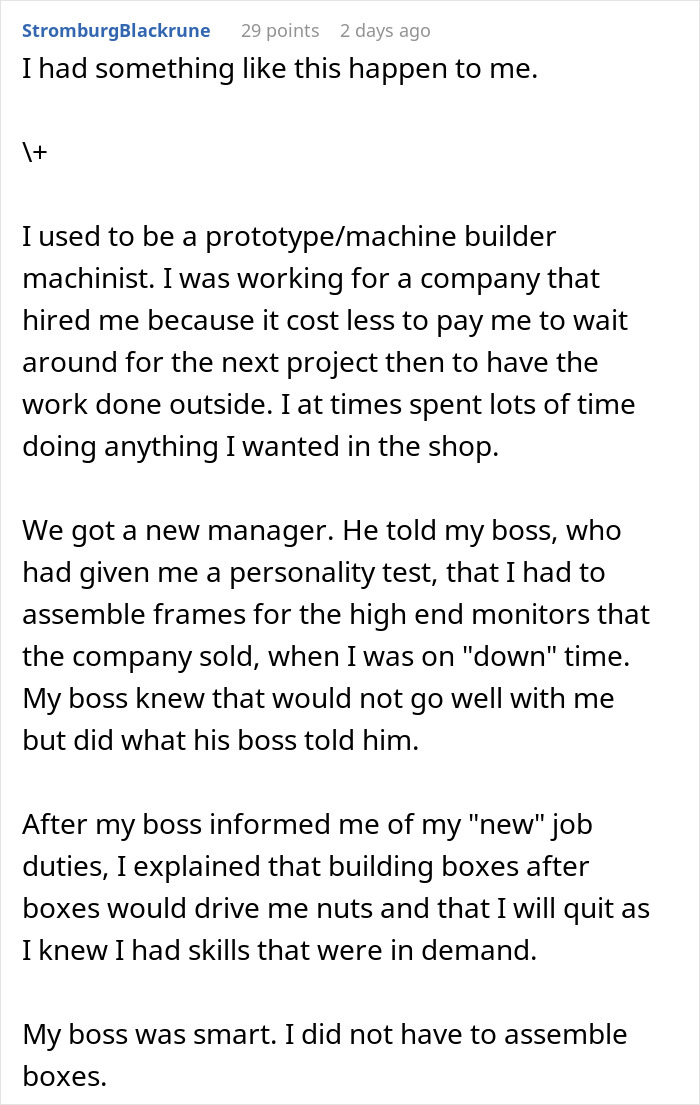












































75
27